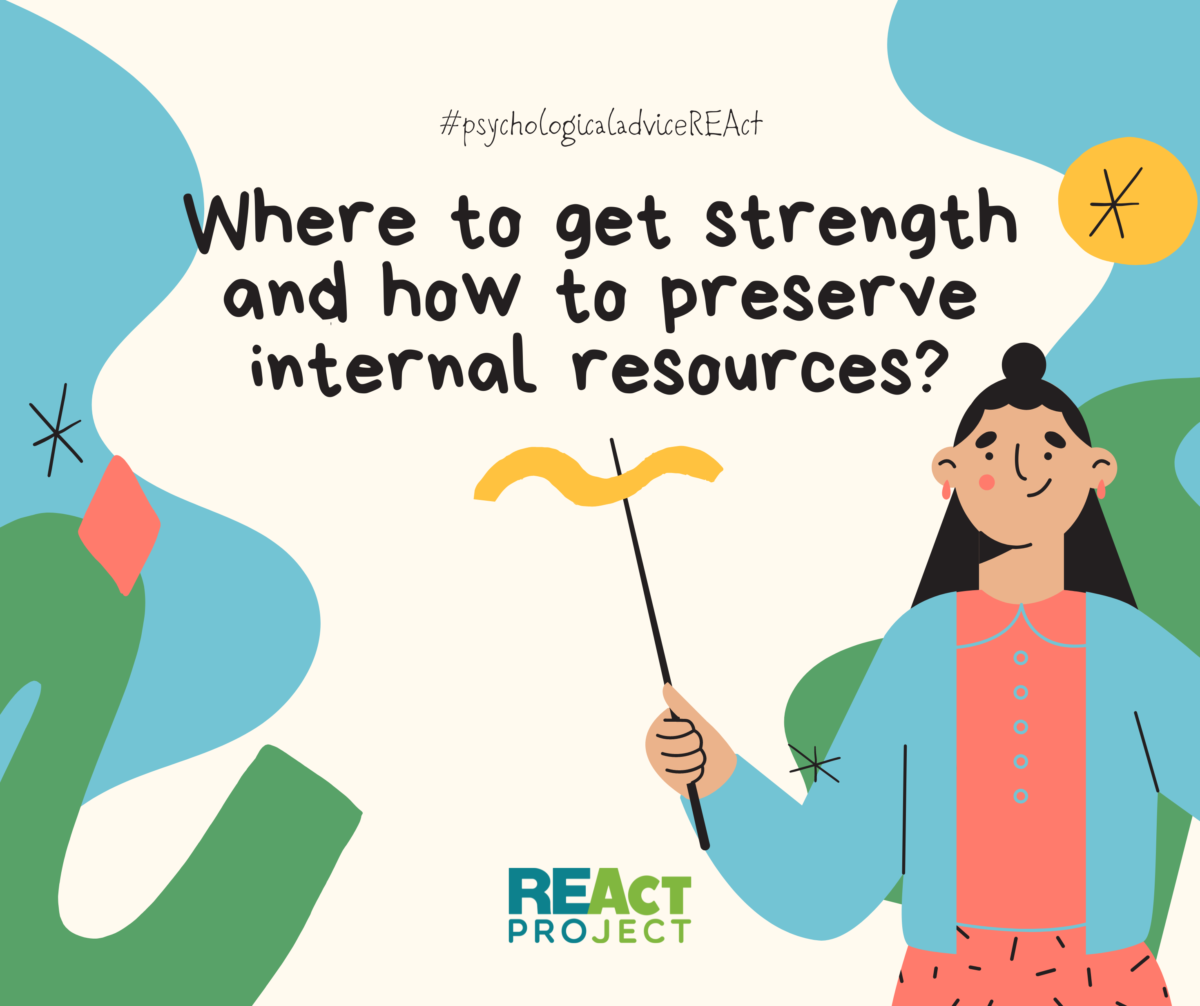The resources referred to here are the pillars of life that allow us to meet our basic life needs, such as survival, safety, physical comfort, social belonging, acceptance, as well as self-actualization. They affect our capabilities and determine what we can or cannot achieve. By and large, these resources define the amount of time needed for us to attain a certain goal.
Internal resources represent the physical and moral strength that we desperately need for our everyday life activities. So, let’s figure out where to draw your strength from and how to maintain your inner resources that are essential for living a comfortable life.
The first things to take care of are as follows:
1. Learn how to manage your available resources.
For the time being (temporarily), stay away from situations that do not directly concern or affect you. For example, those associated with conflicts or conversations involving people around you: they are talking to each other, but not with you.
2. Don’t do things that are beyond your scope of reference.
Do not waste your energy arguing over something that is of secondary importance to you. Avoid disputes over minor matters. As often as not, arguments over non-essential issues involve a manifestly disproportionate effort compared to the satisfaction gained from winning them.
3. Look after your physical needs. Drink if you’re thirsty and eat if you’re hungry. If you need to take a walk or lie down for a bit, do that. However, it’s important to consciously ask relevant questions of your body, taking pauses and focusing on bodily sensations.
4. Get adequate rest and relaxation. Essentially, the body rests during sleep, whereas the brain recharges itself in “silent mode,” with no exposure to external stimuli. To ensure a good rest, reduce the amount of information you consume. There may be nothing but some ambient background noise in your immediate environment when you are resting. It’s best to make sure that no direct information (news, movies, books) enters the brain through your eyes or ears.
5. Avoid leisure activities that tire you out. For example, meeting up with people if you are overwhelmed with human interactions during the day. If you can walk instead of using public transportation, go for that.
The second thing to take care of is to learn how to save and accumulate your energy.
Once you have succeeded in sustainably maintaining your life energy (internal resources) for an extended period of time, you can consider taking gradual steps to build it up. To do this, follow the steps below:
- Try to get new positive experiences on a regular basis, and look for relevant sources around you. Keep track of things, phenomena, or events that boost you up without tiring you out.
- Find events, images, or scents that are pleasing to your senses in the world around you.
- Select your social circle with great care. Surround yourself with people you find interesting and easy to communicate with. Reserve for yourself the right to say no to listening to other people’s complaints, giving advice, or actively participating in gossip and squabbles. Don’t be lazy and look around for people who share similar interests with you.
- Take care of yourself physically, paying attention to your aches and pains, bodily “red flags,” signs and symptoms of nervous system fatigue, and seeking timely help and support when needed. Health is the foundation of everything, so don’t ignore your health problems.


